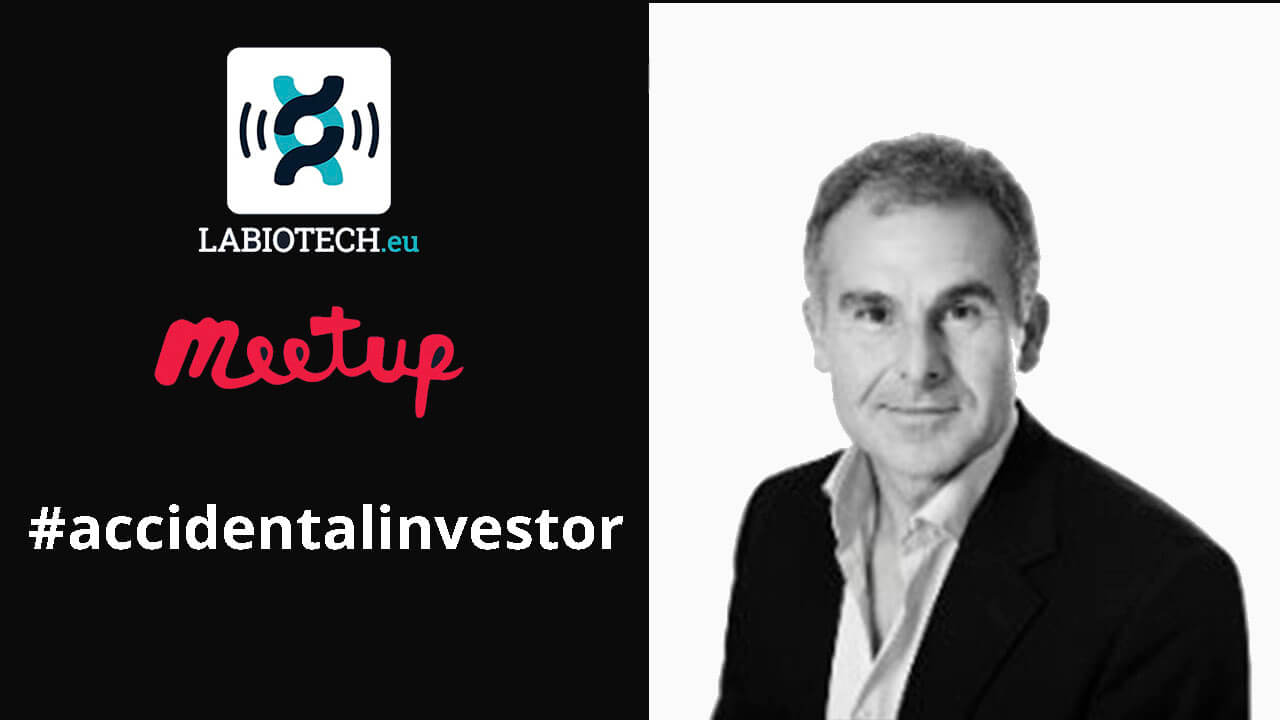Newsletter Signup - Under Article / In Page
"*" indicates required fields
Kevin Johnson, Partner at Medicxi, joined us last week for our Meetup in London. He told us how he ended as an investor despite starting in biotech.
Fresh from his PhD at Cambridge, Johnson stepped into biotech and led the development of a number of human antibodies at Cambridge Antibody Technology (CAT). The company was eventually responsible for one of biotech’s biggest success stories, Humira.
Despite the success he enjoyed as a blockbuster developer, Johnson moved into investment. In 2003, he joined Index Ventures and spearheaded their first experimental asset-centric investment, PanGenetics. From Index, he co-founded Medicxi Ventures, a fund that supports European biotechs as they are “less well-served” than US companies in getting their science commercialized.
Johnson describes his initial decision to go into investment as an “accident”. As he explained, “I hadn’t really been exposed to VCs until I tried to spin out a company… and it fell flat on its face when I went to speak with VCs… so clearly I didn’t understand something.”
To find out what it was he didn’t already know, Johnson began working with Index: “I went and started hanging out with VCs, who I actually had quite a laugh with.” Once he had spent enough time with them, he realized that he had “morphed into one of them” and he actually quite enjoyed the broader view of the industry.

He was unfamiliar with VCs because of a lack of VC interest while working at CAT. The company was working on antibodies back in the 90s and although they were a “big deal”, the entire global market was worth just $200M. This made it particularly difficult to attract investment, especially as antibodies were “unfashionable” and problematic.
But, despite the growth of the biotech industry and more investors opening up to the field, Johnson does not believe it has become easier to launch companies since the 90s: “I think it’s stayed about the same… it’s so dependent on individual circumstances”. It depends on whether the project is a good match for the VC and the people working there. Johnson put it nicely, saying “if you’re the right kind of weird for one firm or set of partners, then you can get something away… beauty is in the eye of the beholder.”
When asked about the best and worst things he has come across while working for a VC, Johnson was quick to highlight that what he deems as beautiful is driven by what will satisfy his investors. His best recent deal was signed in San Diego last year. The candidate was a cancer drug put on clinical hold by a pharma company, which was restarted by the inventor, and it has now passed Phase III and discussions are about to start with the FDA.
“Ugly,” Johnson laughed, “these are things that were hot at the time but nobody wants them anymore.” He explained that he had once invested $11M (€9.5M) in a company only to find that all their results were an artefact due to a faulty piece of equipment. Thankfully, they learnt from it and won’t be letting it happen again!

For a platform to be attractive to investors, Johnson warned entrepreneurs that they’ll have to spend a lot of money before they have something that is “battle ready”. He remembered back to his experience while developing Humira, and explained that the process was particularly stressful as “we were so strapped for cash, we just needed to get this bluddy thing out the door… the technology wasn’t ready.”
Johnson’s advice to entrepreneurs was to think like an investor and how you would feel about it if it was your money. He also said that there is nothing better than an early win, which can entice investors by highlighting that there could be a big pot of gold waiting for them.
Finally, Johnson gave his thoughts on Jean-Paul Clozel’s theory that A-grade management and B-grade technology is better than A-grade technology and B-grade management. He wasn’t so sure, highlighting that this may have been the story of Actelion as “their original technology crashed and burned and it was stuff that they brought in later that made them money.”
Johnson believes that the “ideal recipe” needs both scientists who really understand the domain that they are developing drugs in and management who can add the know-how. Developing B-grade tech is no good for anyone, and the race is on to sell it before it “explodes”.
Images – Premier Photo / shutterstock.com; TierneyMJ / shutterstock.com






